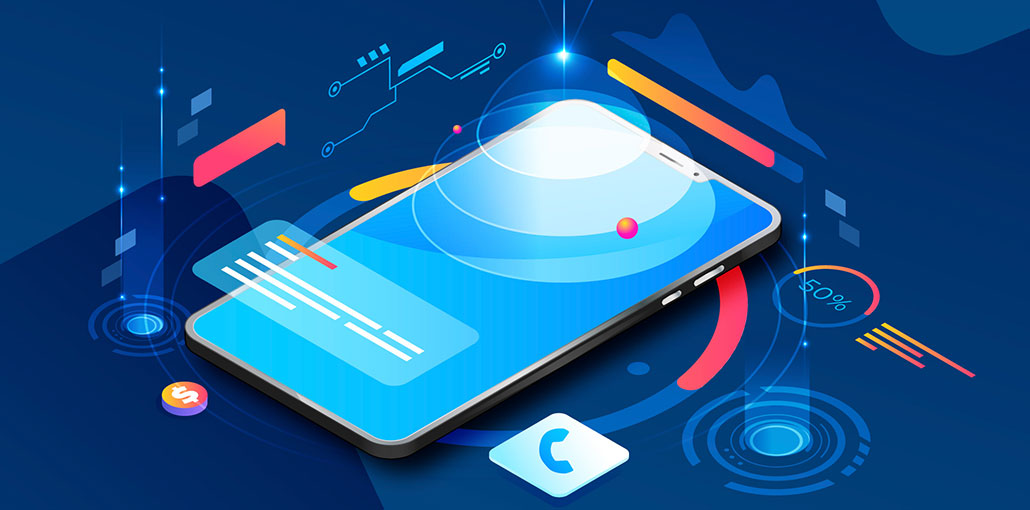The past few years have seen a massive boom in smartphone technology and applications, mainly due to the rapid evolution in artificial intelligence and related technologies. AI has managed to completely transform the user interface and experience for even the simplest mobile apps that we use on a daily basis. In today’s world, half of our daily tasks are automated and performed by mobile apps that are powered by AI, and it is truly a magical time to be alive.
Speaking of artificial intelligence, it is impertinent to mention that the ever-growing phenomenon continues to morph mobile apps into something entirely different. From physical learning to AI-based learning, from physical piano lessons to online lessons for piano – everything is dominated by AI. This article covers how AI is transforming the app game.
What is Artificial Intelligence?
Artificial intelligence is one of the popular buzzwords of the 21st century, but not many people are aware of what it actually does. Basically, AI is a technology that can mimic human behavior and make smart decisions based on inferences. It enables computers to perform tasks that only humans can, i.e., analyzing the environment around them, problem-solving, logical reasoning, learning, and understanding languages as well. Therefore, it won’t be wrong to say that AI is getting closer to human intelligence with each passing day.
Artificial intelligence can be divided into computer vision, natural language, virtual assistants, robotic process automation, and advanced machine learning. Together, these components help address the question scientists have been pondering upon since the 70s: can computers think? This trend was initiated by the mathematician and father of modern computing, Alan Turing.
Also read: What is Artificial Intelligence and How does it Works
In today’s tech-driven world, AI functions as a key branch of computer science, and it is closer to replicating or even replacing human intelligence in several applications.
How AI is Revolutionizing Mobile Apps
If you think closely, mobile apps aren’t the same as they were five or ten years ago. Earlier, apps were mostly static and required humans to perform certain functions in order to perform different tasks, such as booking a cab, sending a message to a friend, and much more. Today, they have been completely transformed into something new. Let’s have a look at some of the ways in which AI has completely transformed mobile apps.
Facial Recognition
Facial Recognition is a futuristic technology that was earlier seen in sci-fi movies but has become a reality in today’s world. The technology enables an electronic device to match a human face from an image or video frame from hundreds of thousands of fake profiles that are stored on a database. Facial recognition has a wide range of applications, from something as simple as unlocking your smartphone to something complex like securing top-secret facilities and preventing unauthorized access.
Facial recognition works by identifying certain facial features from the image of a person who has placed their face in front of the device’s camera. Once the image is stored, it is quickly matched against the facial profiles of numerous people in the system. If a match is found, the device will unlock itself or the system it is supposed to guard. If not, there will be an error.
Speech Recognition
Another gift of artificial intelligence is speech recognition, which refers to the technology that captures voice messages from users and converts them into text. Moreover, speech recognition can also capture the voice of a person and match it with other voices that are stored in the database. In this regard, it is quite similar to facial recognition.
Speech recognition is widely used, including Smart TVs, computer dictation apps, voice remotes, text to speech software, GPS devices, and much more.
Language Processing
Language processing is a technology used by a computer or software to comprehend, interpret and generate human text. It has the AI-powered underlying architecture known as Natural Language Processing, which is commonly found in devices like Alexa, Siri, Google Echo, etc. They are mostly used in text-based virtual assistants.
Personalized Recommendations
Whether you use social media, eCommerce websites, or retail websites, all of them make use of neural networks to predict what customers like and recommend suitable products and options to them. The main purpose of this is to compel customers to buy a certain product or sign up for a specific service, thus making it a powerful marketing and advertising tool.
Customized Feed
Artificial intelligence has also been largely instrumental in providing mobile apps with customization capabilities, and it makes use of engagement data to generate a customized feed that users may be interested to look at, rather than a regular feed that consists of content that users won’t be interested in engaging with. You can see customized feed technology commonly in social media applications like Facebook, Instagram, Twitter, Quora, etc.
Image Recognition
The latest offering by artificial intelligence is image recognition, a technology that matches an input image against an entire database of images to find similar ones. This feature is commonly seen in Google’s image search option, as well as the photo search that has been added to popular site Pinterest. Image recognition technology extracts certain information from an image and matches it against other images to find similarities.
Also read: 7 Things How AI Transforms Software Development
Dating Apps
People looking for love and relationships have also benefited from the marvels of artificial intelligence. Dating apps are empowered with matching features, which help pair two people according to their compatibility. This compatibility is based on several factors, which are identified through machine learning and predictive analysis. Thanks to AI, the matching process has become more accurate and personalized, thus allowing people to find suitable matches. It also takes into account previous matches from a profile and uses them to show the best potential options that a person can date.
As you can see, AI has completely evolved mobile apps over the past decade. Ten years ago, you wouldn’t imagine how this technology would rapidly grow and become a major part of your daily life. As technology continues to progress and grow, we can only wait and see how artificial intelligence will further enhance mobile apps and user experiences.










Leave a comment